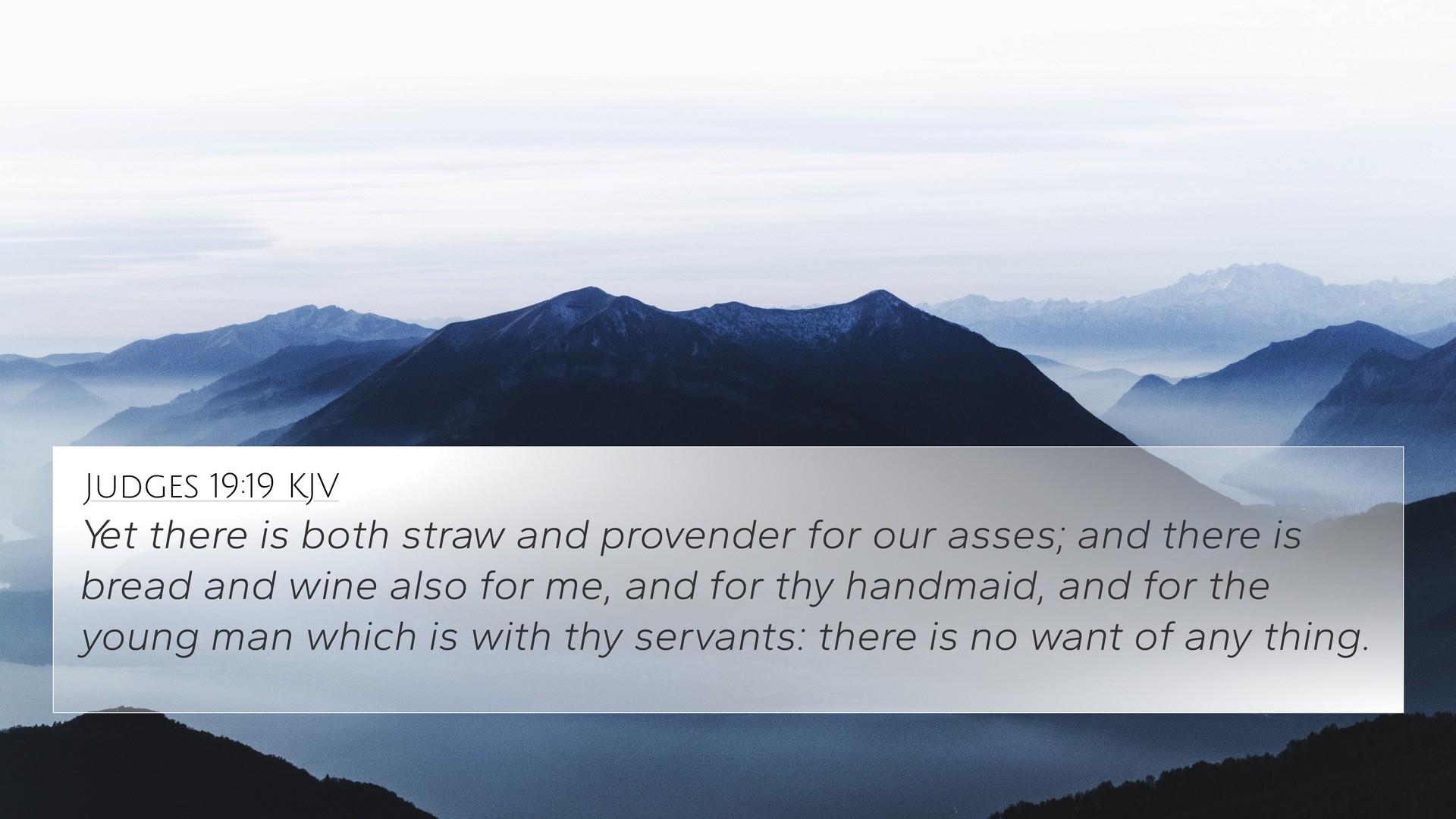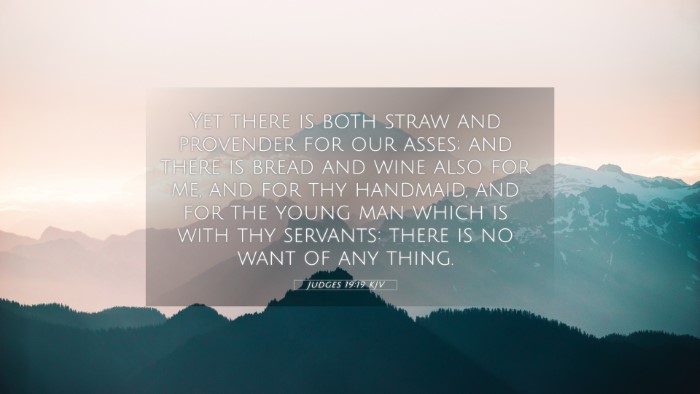Bible Verse Meaning: Judges 19:19
Verse Reference: Judges 19:19
This verse states:
"Yet there is both straw and provender for our asses; and there is bread and wine also for me, and for thy handmaid, and for the young man which is with thy servants: there is no want of any thing."
Interpretation and Insights
This verse captures a moment of hospitality in the narrative of Judges, reflecting on the necessities provided for travelers. Below, we explore the significance of this passage through various theological lenses:
-
Hospitality in Ancient Culture:
Matthew Henry emphasizes the importance of hospitality in the ancient Near Eastern culture, where offering sustenance to strangers was a moral obligation. This reflects the values Jesus later embodies in his teachings about kindness and charity towards others.
-
Provision and Contentment:
Albert Barnes comments on how the statement of the men is a declaration of their sufficiency. It underlines an attitude of gratitude and implies that God provides for His people’s needs, a theme seen throughout Scripture.
-
Symbolic Representation:
Adam Clarke interprets the request for bread and wine as a deeper representation of spiritual sustenance. Bread often symbolizes the Word of God, while wine can signify the joy and fullness found in a relationship with Him.
-
Contrast with Future Events:
This moment of hospitality contrasts sharply with the ensuing events of the chapter, as it illustrates how the initial act of kindness deteriorates into tragedy, reflecting the fallen nature of humanity, which is prevalent throughout the Judges narrative.
-
Understanding of Needs:
The verse implicitly teaches about recognizing and meeting the needs of others. This principle is echoed in the New Testament, where believers are called to bear one another's burdens (Galatians 6:2).
Cross-References and Connections
This verse can be connected to various other passages in the Bible, highlighting thematic correlations. Below are some relevant cross-references:
- Genesis 18:3-5: The account of Abraham receiving guests and offering them food exemplifies the virtue of hospitality.
- Matthew 25:35: Jesus' teaching on caring for the hungry reflects the essence of hospitality and provision.
- Proverbs 19:17: “He who is kind to the poor lends to the Lord,” reinforcing the notion that acts of kindness are divinely echoed.
- Luke 10:34: The Good Samaritan provides medical and material help, which resonates with the actions of the host in Judges 19:19.
- 2 Kings 4:8-10: The Shunammite woman demonstrates proactive hospitality which parallels the sentiments in this verse.
- 1 Peter 4:9: “Offer hospitality to one another without grumbling,” which aligns with the depiction of hospitality in Judges.
- John 6:35: Jesus declares Himself as the Bread of Life, linking the provision from Judges 19:19 to the deeper spiritual sustenance.
Thematic Bible Verse Connections
Exploring the broader themes of the Bible through this verse invites discussion on:
- Hospitality as a divine mandate.
- The contrast between societal kindness and moral failure.
- The provision that God offers through community.
- The spiritual implications of seeking fulfillment in God versus material possession.
Tools for Bible Cross-Referencing
To delve deeper into cross-references and thematic studies, consider the following tools:
- Bible concordance: A valuable resource for identifying keywords and related verses.
- Bible cross-reference guide: Useful for systematic study of connections among Scriptures.
- Bible reference resources: Various apps and books facilitate in-depth study and thematic linking.
Conclusion
Judges 19:19 serves as a poignant reminder of the significance of hospitality and provides a window into the cultural practices and divine mandates found throughout Scripture. By connecting various verses, one can gain a holistic understanding of Biblical themes related to provision, care for others, and spiritual sustenance.


